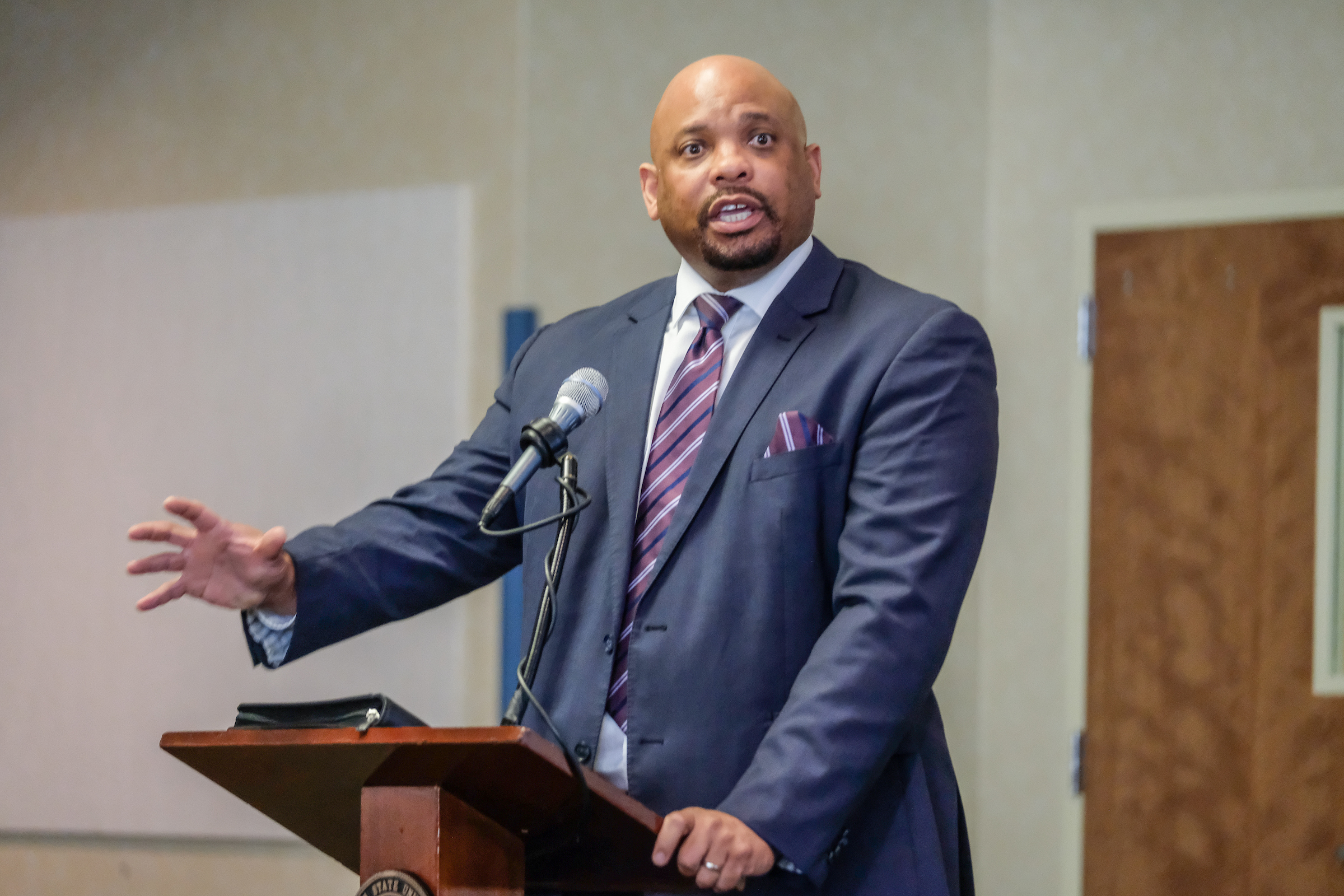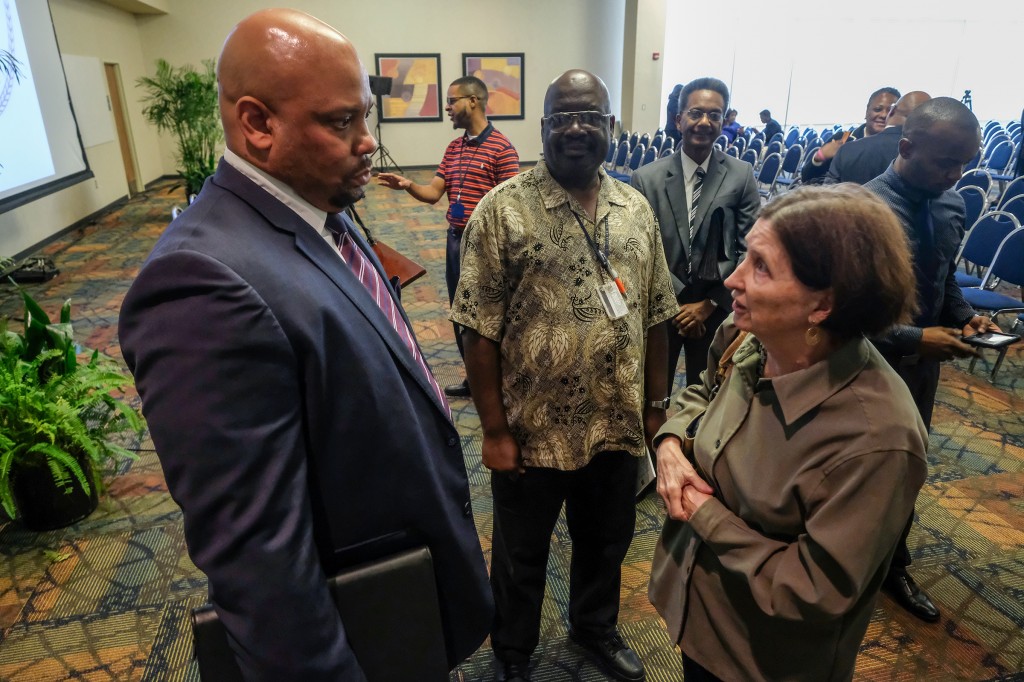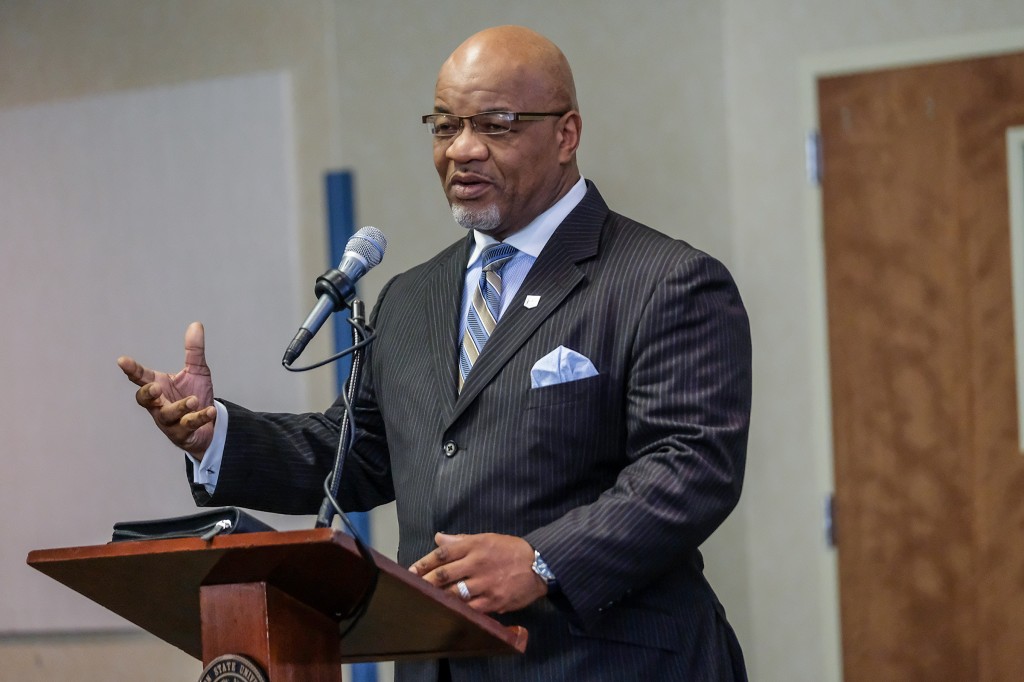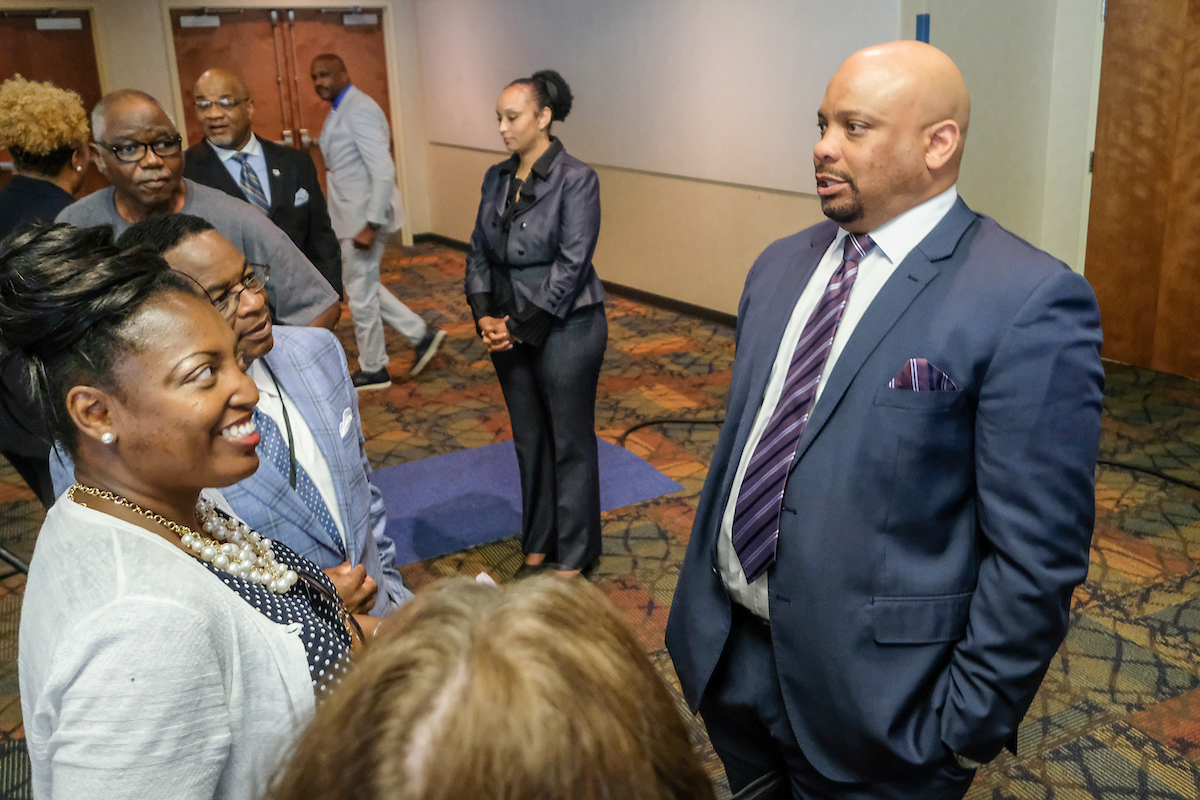
![]()
[hr]

The new commissioner for Mississippi Institutions of Higher Learning (IHL) opposes closing or merging any state university but will support efforts to generate additional funding for HBCUs as Ayers funding gradually dissolves.
During his Listening Tour of the state to various institutions, Dr. Alfred Rankins Jr. visited Jackson State University on Wednesday to hear from constituency groups – the president’s executive Cabinet, faculty, staff and students. The open forum allowed him to explain IHL’s system and gain perspectives on how the governing body can best support JSU’s mission.
Rankins said he will partner with President William B. Bynum Jr. and his administrative team to “help advocate for this great university.”
A sigh of relief followed after the commissioner expressed strong opposition to consolidating or closing schools. The looming issue has haunted alumni of Mississippi’s public HBCUs for years.
Rankins, the first-ever African-American to oversee the state’s eight public universities, said, “I don’t think my board supports it. And I don’t think there’s an appetite through the legislature to do it. There’s only one body that has constitutional authority to open a university, close a university, merge or consolidate a university. And, that’s the state legislature.”
Furthermore, he said such a drastic decision would be counterproductive.
“Regardless of what our funding woes are closing a university is the last thing we should do. … We are the least educated state in the United States; education is the key to increasing funding.”
Another huge issue on the minds of attendees involved dwindling funds from the Ayers litigation. JSU, Alcorn and Mississippi Valley State netted a $500 million settlement in 2001. However, after a decrease in funding this year and a complete phase-out in 2022, HBCUs will have to scramble to fill the funding gap. Without sufficient alternative appropriation, academic programs and jobs potentially could be lost, some sources say.

Rankins earned his undergraduate degree at Alcorn State University and says the Ayers issue is especially dear to him because his alma mater and the other two public HBCUs are beneficiaries of the settlement.
“I’m working hard with those three presidents in trying to help them get support for additional funding,” he said. “My role as commissioner is to be an advocate for Jackson State as well as other universities within the IHL system.”
Meanwhile, the commissioner addressed other issues, too:
- Commissioner’s goals: “First and foremost I want our system to raise baccalaureate degree attainment in Mississippi; currently about 22 percent of residents have some educational experience at the baccalaureate level or higher. If we’re able to raise educational levels in the state, we can increase median household income and tax collections, making more money available for our universities.” Additionally, Rankins wants to “make sure we strengthen the physical capacities of all universities and maintain tuition at an affordable and accessible level.”
- Role of IHL: “IHL’s role, in general, is overall governance. The board sets policy that governs all eight of our institutions, not to micromanage or tell the institutions what they should do. Day-to-day operations rest with the campus. The board is responsible for hiring the president at all institutions. My job is to supervise and evaluate presidents, and the board makes decision about continuing their employment at the end of their contract.”
- How the university is funded: “There are two pots of money that JSU uses to operate – appropriation from the legislature and tuition revenue. When tax collections fall below estimates we all receive cuts.”
- On-campus football stadium: “My role as commissioner is to support whatever facilities that are needed at JSU and whatever JSU brings forth. I’ve seen JSU’s facility requests, and I don’t think I saw a new stadium on the list.”
- Shared faculty-staff governance:“Nothing gives me the authority to address shared governance. … Shared governance does not mean that all these different groups tell the president what he should do. Ultimately, the decision rests with the president.” Rankins admits, however, that the president must rely on faculty support for a successful tenure.
- Divvying up money to all eight institutions: “The pot of money that IHL receives for general operation of the campus is more or less divided based on the relative size of the institution. If you have a larger percentage of students in the system, you get a larger slice of the pie. If you have a smaller percentage, you get a smaller slice.” Thus, Rankins said, JSU is in the middle, following the Top 3 that consists of University of Mississippi, Mississippi State and University of Southern Mississippi. The bottom consists of Alcorn State University, Delta State University, Mississippi University for Women and Mississippi Valley State University.
- Remission of fees for employees to attend sister institutions: “That’s a decision that will have to be agreed upon by the eight presidents of our representative universities.”







